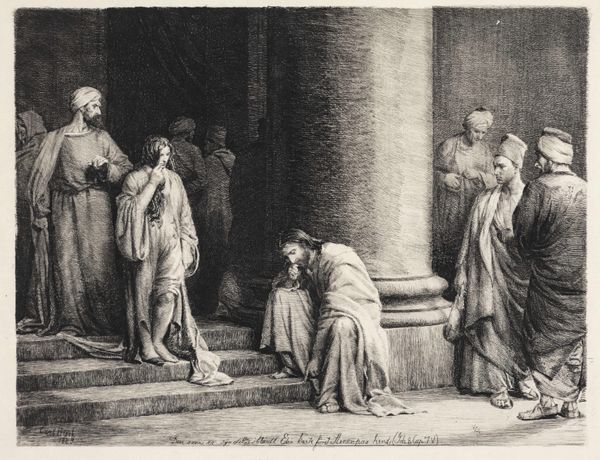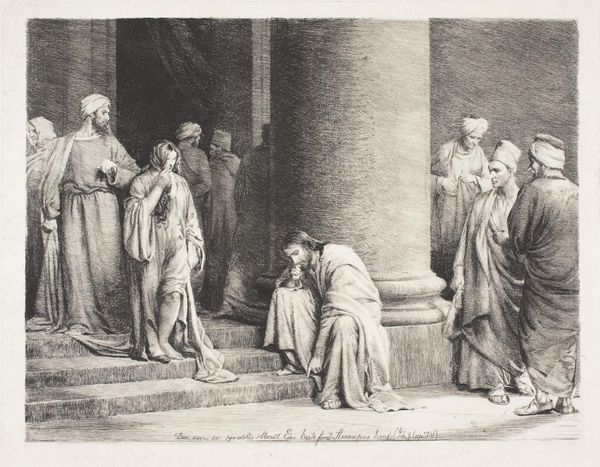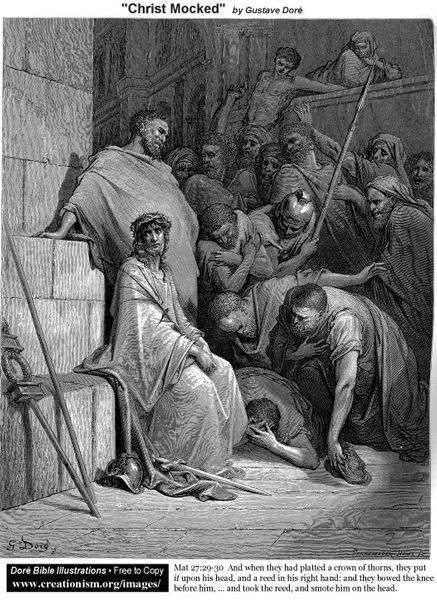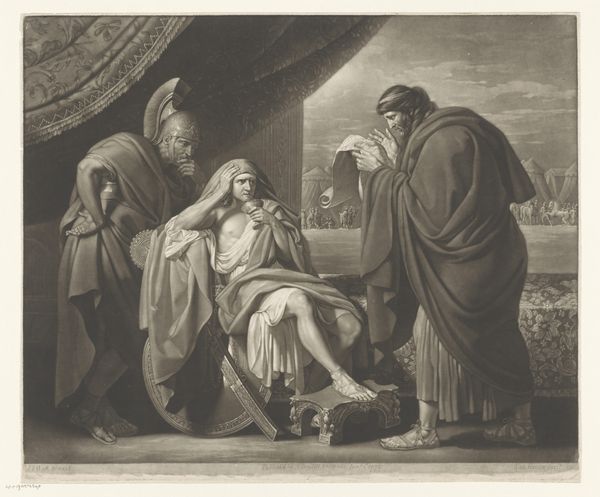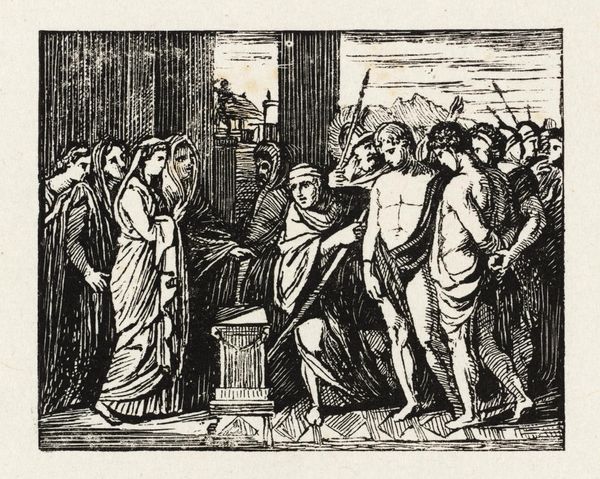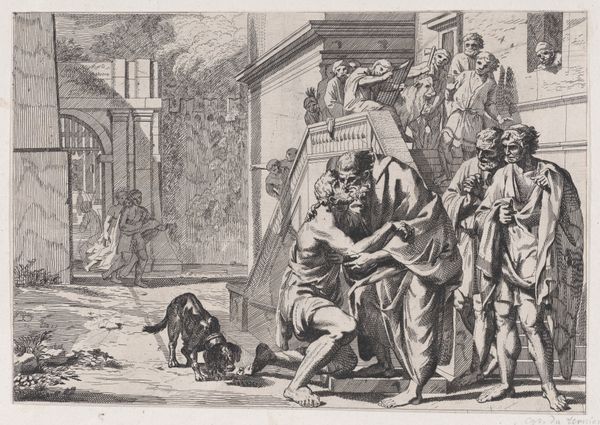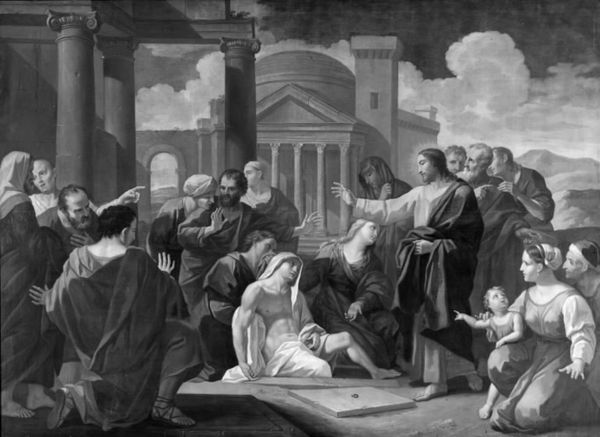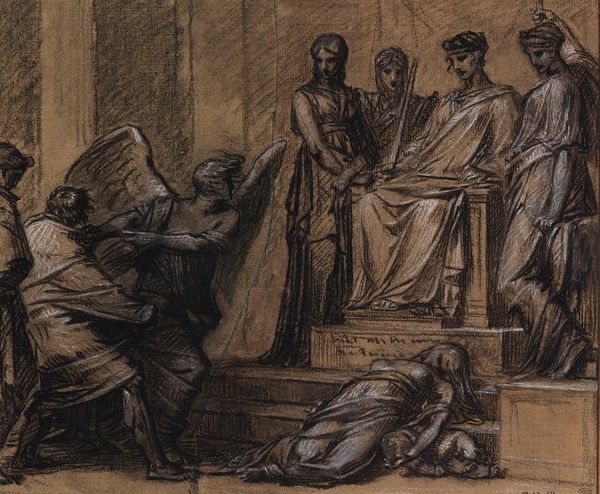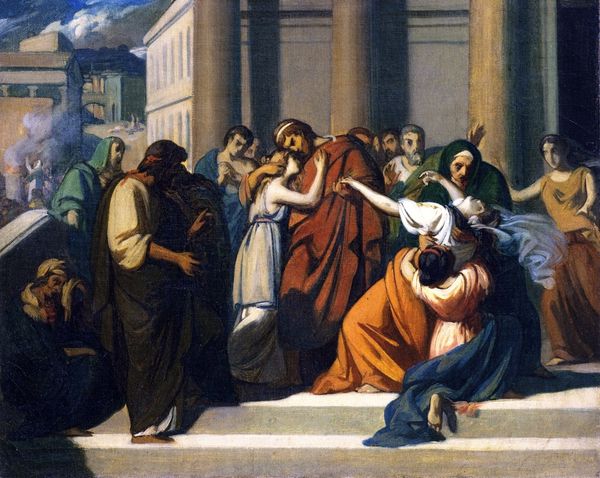
drawing, pencil, engraving
#
portrait
#
drawing
#
sculpture
#
figuration
#
black and white
#
pencil
#
monochrome photography
#
history-painting
#
academic-art
#
monochrome
#
engraving
#
realism
#
monochrome
#
christ
Dimensions: 40 x 59 cm
Copyright: Public domain
Curator: Here we have Carl Bloch’s “Christ and the Sinner,” created around 1890. It's a striking drawing, seemingly made with pencil and engraving techniques, rendered entirely in monochrome. Editor: The scene has such weight, doesn't it? The textures Bloch coaxes out of a simple monochrome palette really bring out a somber, contemplative mood. It feels...stark. What grabs your attention when you look at it? Curator: You know, it’s the dichotomy that sings to me. We have this quiet, intimate moment contrasted against this grand, almost imposing architecture. See how Christ is positioned so low, almost huddled? It speaks volumes about humility and compassion against a backdrop of judgement and societal structures. Think about that context of late 19th-century academic art. Editor: I hadn't considered the setting contributing to that juxtaposition so strongly! The figures pressing in behind, their faces partially obscured, give the impression that judgement can feel overwhelming. Curator: Exactly. It makes me think of those whispered judgments, the kind that carry so much weight. Now, consider Bloch's choices. He uses realism, but softens the edges with that muted palette. What impact do you think that has? Editor: It almost invites empathy. A hyper-realistic approach might make it too harsh, too pointed. The softness lets us feel the moment rather than just observe it. Curator: I agree entirely. Bloch manages to make a powerful theological statement through incredibly nuanced artistic choices. It feels deeply personal, wouldn't you say? Editor: Absolutely. It has me thinking about how societal judgment operates, and how easily it can overshadow compassion. Curator: Beautifully said. It's a piece that stays with you long after you’ve stopped looking at it, doesn't it?
Comments
No comments
Be the first to comment and join the conversation on the ultimate creative platform.
